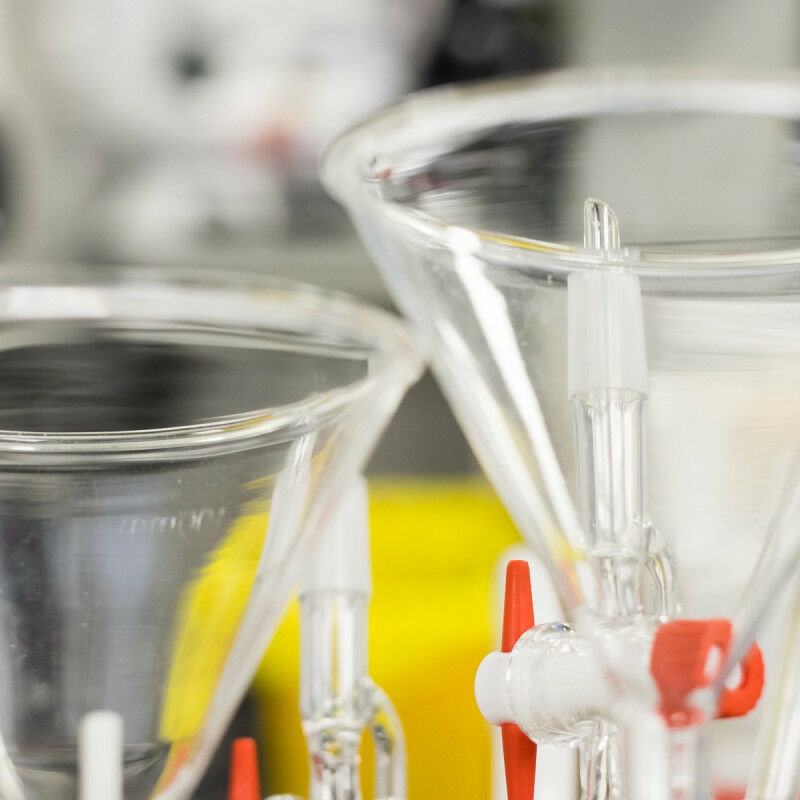
Cancer research
据MyScience网站2022年5月5日报道,新的全科医生血液测试可以帮助诊断卵巢癌(New GP blood test could help diagnose ovarian cancer)。
由领先的女性健康慈善机构“女性福祉(Wellbeing of Women)”资助的一项研究表明,全科医生可以进行的一项简单的血液检测,可以帮助更快、更准确地诊断卵巢癌,尤其是对50岁以下的女性。
这项研究由英国曼彻斯特大学(University of Manchester)的加思·芬斯顿博士(Dr Garth Funston)、克洛伊·巴尔博士(Dr Chloe Barr)和 艾玛·克罗斯比教授(Professor Emma Crosbie);伯明翰大学(University of Birmingham)的大卫·杰尔范博士(Dr David Jeelvan)和 苏达·孙达尔教授(Professor Sudha Sundar)以及英国埃克塞特大学(University of Exeter)的卢克·马乌斯博士(Dr Luke Mounce)合作进行,研究了一种蛋白质是否在血液中发现的人类附睾蛋白4(human epididymis protein 4简称HE4) 可以帮助更准确地识别卵巢癌,并使其他女性免于不必要且通常是侵入性的检查和程序,例如体检和活检。相关研究结果与2022年4月24日已在同行评审期刊《癌症》(Cancers)杂志网站发表——Chloe E. Barr, Garth Funston, David Jeevan, Sudha Sundar, Luke T. A. Mounce, Emma J Crosbie. The Performance of HE4 Alone and in Combination with CA125 for the Detection of Ovarian Cancer in an EnrichedPrimary Care Population. Cancers, 24 April 2022, 14(9): 2124. DOI: 10.3390/cancers14092124. https://www.mdpi.com/2072-6694/14/9/2124
参与此项研究的曼彻斯特大学NHS信托基金圣玛丽医院妇产科曼彻斯特学术健康科学中心(Manchester Academic Health Science Centre, Department of Obstetrics and Gynaecology, St Mary’s Hospital, Manchester University NHS Foundation Trust, Manchester M13 9WL, UK)、剑桥大学(University of Cambridge)、曼彻斯特大学(University of Manchester)、伯明翰大学以及埃克塞特大学医学院(University of Exeter Medical School)的研究人员。
卵巢癌是英国女性中第六大常见癌症,每年约有7500例新病例。几乎五分之一的新诊断(18%)发生在50岁以下的女性中。目前,怀疑患有卵巢癌的女性会接受血液检查,以分析她们体内一种名为CA125的蛋白质的水平。大量这种蛋白质可能是癌症的征兆,但也可能由其他情况引起,例如月经、怀孕、子宫肌瘤和子宫内膜异位症。
血液中CA125水平升高的女性中,每10名女性中就有9名没有患卵巢癌。同时,如果CA125 水平过低,可能会漏诊一些卵巢癌,这会导致在癌症更晚期时才有可能被确诊,贻误了早诊断、早治疗的良机。
研究人员研究了12个月内从1229名患者收集的血液样本。对样本进行了HE4测试,该团队研究了HE4单独以及与CA125结合使用的诊断准确性。该研究得出结论,当与当前的 CA125测试并在算法中分析HE4水平时,可以改善卵巢癌的检测,特别是在 50 岁以下的女性中。
现在建议进行更大规模的研究来证实这些发现。虽然我们的结果需要在更大的样本中进行验证,但这些发现非常有希望。
曼彻斯特大学全科临床学术研究员(Academic Clinical Fellow in General Practice at the University of Manchester)加思·芬斯顿博士于2021年被世界卵巢癌联盟授予首届变革性研究奖(Transformational Research Award by The World Ovarian Cancer Coalition in 2021),他说:“虽然我们的结果需要在更大的样本中进行验证,但这些发现是非常有希望。众所周知,卵巢癌很难在早期诊断,因为症状通常是非特异性的,包括腹胀、疼痛和进食后很快感到饱腹感。我们还知道,我们目前用于调查有症状女性卵巢癌的血液检测初级保健中-CA125-在年轻女性中不太准确。我们希望我们的研究能够有助于改变卵巢癌的识别速度。这尤其令人兴奋,因为多年来在开发用于初级保健的更准确的卵巢癌检测方法方面进展甚微。”
以前的研究强调HE4是一种很有前途的癌症生物标志物,但到目前为止,只有在已经检测到盆腔肿块的住院女性群体中才进行测试。它目前已被美国食品和药物管理局 (FDA) 批准用于监测缓解情况。
女性健康研究咨询委员会(Research Advisory Committee at Wellbeing of Women)主席、伦敦大学学院女性健康研究所(The Institute for Women’s Health, University College London)的大卫·威廉姆斯教授(Professor David Williams)说:“这项研究的潜在影响是巨大的。英国每天约有21名女性被诊断出患有卵巢癌。癌症时刻都在发生,我们知道早发现,早治疗,就越有可能成功,因此让全科医生能够更快地发现潜在病例至关重要。这是HE4首次在初级保健环境中进行评估,因此看到开展更大规模的研究以进一步评估其作为诊断辅助手段的有效性将是令人兴奋的。早期诊断将对女性的治疗、护理以及最终的生存产生重要影响。”
上述介绍,仅供参考。欲了解更多信息,敬请注意浏览原文或者相关报道。
Simple Summary
Ovarian cancer is the most common cause of death from gynaecological cancer in the UK. Survival is better when the disease is diagnosed early. However, identifying ovarian cancer is challenging because symptoms are non-specific. Simple, accurate tests are needed to help identify ovarian cancer in symptomatic women. HE4, a relatively new blood biomarker, has shown promise in the hospital setting. This study aimed to assess whether HE4 would improve ovarian cancer diagnosis in women with symptoms in primary care. We found combining HE4 levels with the currently used test (CA125) within an algorithm (Risk of Ovarian Malignancy Algorithm) improved the detection of ovarian cancer in primary care, particularly in women under 50 years of age, where diagnosis is more challenging. However, our results require validation in a larger sample. This study advances our knowledge of HE4 as an ovarian cancer biomarker in the primary care setting.
Abstract
Human epididymis 4 (HE4) is a promising ovarian cancer biomarker, but it has not been evaluated in primary care. In this prospective observational study, we investigated the diagnostic accuracy of HE4 alone and in combination with CA125 for the detection of ovarian cancer in symptomatic women attending primary care. General practitioner (GP)-requested CA125 samples were tested for HE4 at a large teaching hospital in Manchester, and cancer outcomes were tracked for 12 months. We found a low incidence of ovarian cancer in primary care; thus, the cohort was enriched with pre-surgical samples from 81 ovarian cancer patients. The Risk of Ovarian Malignancy Algorithm (ROMA) was calculated using age (</>51) as a surrogate for menopause. Conventional diagnostic accuracy metrics were determined. A total of 1229 patients were included; 82 had ovarian cancer. Overall, ROMA performed best (AUC-0.96 (95%CI: 0.94–0.98, p = <0.001)). In women under 50 years, the combination of CA125 and HE4 (either marker positive) was superior (sensitivity: 100% (95%CI: 81.5–100.0), specificity: 80.1% (95%CI 76.7–83.1)). In women over 50, ROMA performed best (sensitivity: 84.4% (95%CI: 73.1–92.2), specificity: 87.2% (95%CI 84.1–90)). HE4 and ROMA may improve ovarian cancer detection in primary care, particularly for women under 50 years, in whom diagnosis is challenging. Validation in a larger primary care cohort is required.

















最新评论
如果是真的那就太好了
现在是短视频的时代,认真做个人博客的很少见了,真是难能可贵。
拼多多砍几刀太烦了,一直让砍
投资就是认知的变现
不要把幸福建立在别人的痛苦之上
地震能把铁路都震弯
知道了
这样的问题居然还需要分析?但凡脑子正常点也知道公司无责